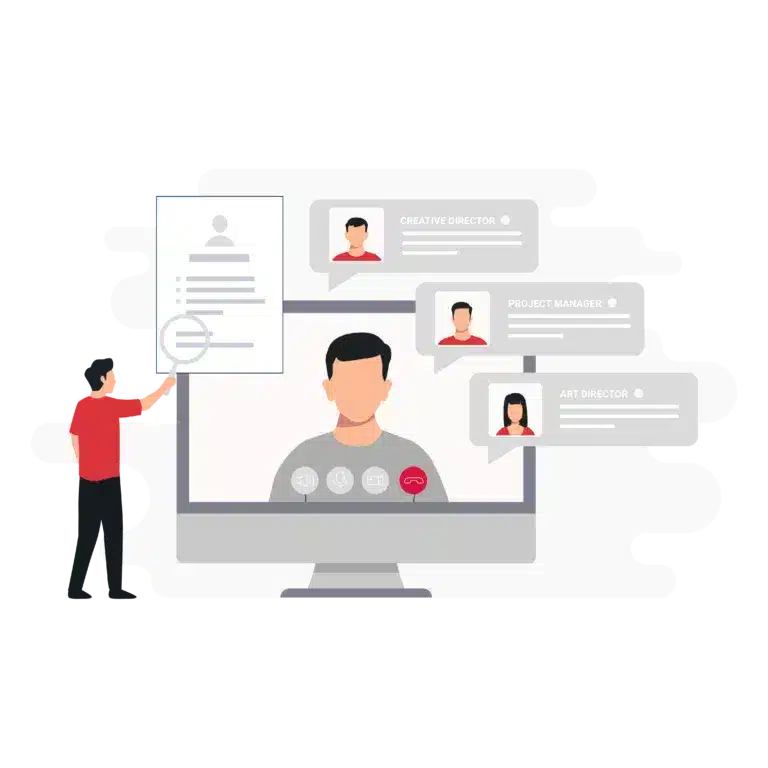Identifying and hiring top talent is more challenging than ever for recruiters. With countless resumes flooding in for each job opening, it can be overwhelming to sift through them all to find the ideal candidates. However, recruiters have a powerful tool at their disposal: verbal reasoning tests. These assessments offer invaluable insights into candidates’ cognitive abilities, communication skills, and problem-solving capabilities, making them an essential component of any recruitment process.
Research from the Society for Industrial and Organizational Psychology indicates that candidates who perform well on verbal reasoning tests are 4 times more likely to succeed in their job roles.
In this guide, we’ll delve into how recruiters can harness the power of verbal reasoning tests to identify and hire top talent effectively.
Understanding verbal reasoning tests
Before diving into how to leverage verbal reasoning tests in recruitment, let’s first explore what these tests entail. Verbal reasoning assessments are psychometric assessments designed to evaluate candidates’ ability to comprehend and analyze written information. Typically administered online, these tests present candidates with passages of text followed by multiple-choice questions that assess their understanding, interpretation, and logical reasoning skills.
Key components of verbal reasoning tests
Verbal reasoning assessments typically assess the following key components:
- Reading comprehension: Candidates are required to read and understand passages of text, demonstrating their ability to extract relevant information and comprehend the author’s intended meaning.
- Critical reasoning: Candidates must analyze and evaluate arguments presented in the text, identifying logical fallacies, assumptions, and conclusions.
- Vocabulary: Candidates’ vocabulary skills are assessed through questions that require them to understand and interpret words and phrases in context.
- Sentence completion: Candidates may be asked to complete sentences or fill in missing words based on the context provided in the passage.
- Inference: Candidates must draw logical inferences from the information presented in the text, demonstrating their ability to synthesize information and make deductions.
Benefits of using verbal reasoning tests in recruitment
Integrating verbal reasoning tests into the recruitment process offers numerous benefits for employers:
- Objective Assessment: Verbal reasoning assessments provide recruiters with objective data about candidates’ cognitive abilities and communication skills, reducing the risk of bias in the hiring process.
- Predictive Validity: Research has shown that performance on verbal reasoning assessments correlates with job performance, making them a reliable predictor of candidates’ potential success in the role.
- Time Efficiency: Verbal reasoning assessnebts can quickly screen large numbers of candidates, allowing recruiters to focus their time and resources on the most promising applicants.
- Cost-Effectiveness: Compared to traditional assessment methods such as interviews and assessments centers, verbal reasoning assessments are relatively inexpensive to administer, making them a cost-effective option for recruiters.
Incorporating verbal reasoning tests into the recruitment process
Now that we’ve established the importance of verbal reasoning tests in recruitment, let’s explore how recruiters can effectively incorporate them into their hiring process:
1. Define job requirements
Before administering verbal reasoning assessments, recruiters must clearly define the key competencies and skills required for the role. This ensures that the test accurately assesses candidates’ suitability for the position.
2. Choose the right test
There are numerous verbal reasoning tests available, each with its own format and question types. Recruiters should select a test that aligns with the specific requirements of the role and provides reliable and valid results.
3. Set clear expectations
Candidates should be informed about the purpose of the verbal reasoning assessment and what it entails. Providing clear instructions and guidance can help alleviate any anxiety and ensure that candidates perform to the best of their abilities.
4. Analyze results
Once candidates have completed the verbal reasoning test, recruiters should carefully analyze the results to identify top performers. Comparing candidates’ scores against predefined benchmarks can help determine their suitability for the role.
5. Combine with other assessment methods
While verbal reasoning tests offer valuable insights, they should be used in conjunction with other assessment methods, such as interviews and work samples, to provide a comprehensive evaluation of candidates’ skills and capabilities.
Best practices for administering verbal reasoning tests
To maximize the effectiveness of verbal reasoning assessments in recruitment, recruiters should follow these best practices:
- Ensure test validity: Choose tests that have been validated and demonstrate reliability in predicting job performance.
- Provide adequate preparation: Offer candidates practice materials or sample questions to familiarize them with the test format and requirements.
- Offer reasonable accommodations: Accommodate candidates with disabilities or special needs to ensure a fair and accessible testing experience.
- Maintain confidentiality: Protect candidates’ privacy by securely storing and handling test results in accordance with data protection regulations.
- Continuous improvement: Regularly review and evaluate the effectiveness of verbal reasoning tests in your recruitment process, making adjustments as needed to optimize outcomes.
Conclusion
Incorporating verbal reasoning tests into the recruitment process can help recruiters identify and hire top talent more effectively. By assessing candidates’ cognitive abilities, communication skills, and problem-solving capabilities, these tests provide valuable insights that inform hiring decisions and improve organizational performance. By following best practices and integrating verbal reasoning tests with other assessment methods, recruiters can build a robust and reliable recruitment process that attracts and retains the best talent for their organization.
Ready to streamline your recruitment process and uncover top talent? Incorporate verbal reasoning tests seamlessly into your hiring strategy with Testlify, a leading skills assessment platform. Sign up for free and access a range of validated tests and optimize your recruitment efforts.







